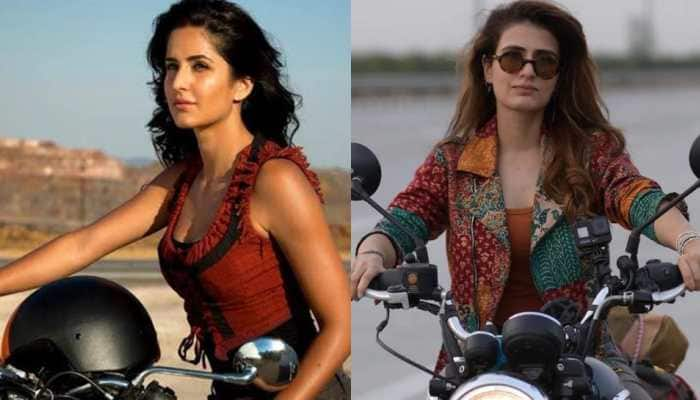‘No country wants foreign aid in perpetuity’
Mark Lowcock spoke on the UK`s development aid plans.
Trending Photos
)
 Since its inception, the Department for International Development (DFID) has been working to create a world that is equal and poverty-free. Mark Lowcock, DFID Permanent Secretary, talks to Bushra Ahmed of OneWorld South Asia about the UK`s development aid plans, the complexity of development and the need for collaboration between countries if development aid has to be put to good use.
OWSA: There is a sense of discomfort in the UK about aid assistance to countries like India, Brazil and China, keeping in mind their economic prowess. What is your opinion regarding this and where do you fit in that debate?
Mark Lowcock: The first thing to say is that the UK has a commitment to increase development assistance programmes to the South to 0.7 per cent of our national income, which has been a long-standing target. It’s really important that aid resources are focussed on countries where we can make the strongest progress on the Millennium Development Goals (MDGs), and that aid resources are focussed on places where other resources are not available to the same degree. We used to have a collaboration programme with China and Russia and we don`t have those programmes anymore because those countries are developed and they can raise their own resources. So, that way we have a programme in India too. We`ve said that we are walking the last mile of our traditional collaboration programme with India, and we think it will be really important to have a continuing relationship with India on development aspects. On the other side, it also reflects the wonderful progress India has made on development -- the way the economy has grown over the last 10 years.
OWSA: Taking on from the previous question, how do you decide which country is developed or not? This is bothering people in the South, as despite the economic strength, there doesn’t seem to be any trickle-down effect in these countries. So, in the end it’s rather difficult to judge who is developed and who is not.
Mark Lowcock: And that`s right. Development is continual and what we think is that scarce aid resources are mostly focussed on those countries which have the biggest journey to make on the MDGs and those countries that don`t have other means of getting resources, because their tax pay is too small, or they don`t have access to the capital market. We used to have development programmes as DFID in 65 countries several years ago. Many of these countries have done really well and can now raise their own money on the capital market and are in a position to largely achieve the MDGs. So, about four years ago that 65 came down to 45. We have said that over the next period we will be focussing on just 28 countries because many of those 45 have themselves evolved. The issue is, given that aid resources are always scarce one must focus them on places where there still are the largest proportions of people living on less than a $2.5 a day and there are the largest number of children who no longer go to school or there are still too many women dying in child birth or children dying before they are five year.
OWSA: There`s a big thing about ‘trade not aid‘. Do you foresee in the near future that traditional aid may perhaps be replaced by `investment aid`?
Mark Lowcock: Well, I think the poorest countries will continue to need development assistance of the traditional sort, probably for a while. No country wants to be reliant on foreign assistance in perpetuity. Every country wants to make its own way really, but for some of the very poorest that is not realistic in the short term. Trade and aid are not alternatives, they are complementary. As countries develop they can trade more; can raise money to finance their development from their own tax pays; can access capital markets more effectively; so, trade facilitates support for all of that. It is absolutely the case that as the world is globalised, and economies have integrated, trade is a win-win situation. I studied economics and one of the things I have learnt is that trade is something from which both sides benefit. So, we think of it as a good thing that the UK is a country with a very open economy and a very open society. We are in favour of the market being open and everyone being able to trade. It is good for everybody, but that’s not to say we think that now trade is an adequate substitute for aid. Because it is not.
OWSA: On the topic of free trade, the North has placed many trade barriers and agreements that in many ways make free trade, kind of defunct. What about these trade barriers, especially in primary sectors like textiles, agriculture, drugs?
Mark Lowcock: The UK is a very strong proponent of trade liberalisation. We think that opening markets ends up being good for everybody and the EU has essentially opened up these markets for the least developed countries so they can export everything to the EU duty-free and tax- free. Everything except arms, we are not so keen on that. Of course there are difficulties, there are always interest groups who want to protect their industry and that is completely understandable and that is why trade negotiations are difficult and time-consuming. But we strongly believe in the UK that ultimately opening markets has proven to be in everybody’s interest.
OWSA: The Padma project controversy, brought to fore another anxiety, accountability and corruption in recipient countries. What kind of checks and measures can be put in place to ensure that aid is used for the right purposes?
Mark Lowcock: Well, there are a number of things that DFID does in this respect. Firstly, when it comes to our own resources, we have substantial investment in processes and intelligence and fiduciary assessment. We have a big programme to improve the skills of our staff in all these areas. We also have finance improvement programmes. Of course, sometimes you have a loss and you find it, our policy in those circumstances is to recover the resources and we have a very good track record. So, the first thing we do is a really good job in safeguarding the money that the British tax payer contributes. Secondly, we think we have a useful role to play in helping countries build institutions and cultures which tackle corruption. Corruption isn`t a problem primarily for aid flows, it’s a generic problem and DFID makes a big effort around the world to strengthen parliamentary bodies like public accounts committees; to strengthen audit bodies like the national audit office and the comptroller & auditor general; support a free media so that problems can be exposed. We build all of these institutions in order to help a country become one that looks after its own resources better. Thirdly, we think there is a case for greater collaboration between countries to deal with corruption and money laundering. For example, DFID finance is a unit of the Metropolitan Police in London and the city of London police in London; whose job it is to tackle international money laundering and international corruption. That kind of international collaboration between law enforcement agencies is of what we think is a good overall strategy to tackle corruption.
Since its inception, the Department for International Development (DFID) has been working to create a world that is equal and poverty-free. Mark Lowcock, DFID Permanent Secretary, talks to Bushra Ahmed of OneWorld South Asia about the UK`s development aid plans, the complexity of development and the need for collaboration between countries if development aid has to be put to good use.
OWSA: There is a sense of discomfort in the UK about aid assistance to countries like India, Brazil and China, keeping in mind their economic prowess. What is your opinion regarding this and where do you fit in that debate?
Mark Lowcock: The first thing to say is that the UK has a commitment to increase development assistance programmes to the South to 0.7 per cent of our national income, which has been a long-standing target. It’s really important that aid resources are focussed on countries where we can make the strongest progress on the Millennium Development Goals (MDGs), and that aid resources are focussed on places where other resources are not available to the same degree. We used to have a collaboration programme with China and Russia and we don`t have those programmes anymore because those countries are developed and they can raise their own resources. So, that way we have a programme in India too. We`ve said that we are walking the last mile of our traditional collaboration programme with India, and we think it will be really important to have a continuing relationship with India on development aspects. On the other side, it also reflects the wonderful progress India has made on development -- the way the economy has grown over the last 10 years.
OWSA: Taking on from the previous question, how do you decide which country is developed or not? This is bothering people in the South, as despite the economic strength, there doesn’t seem to be any trickle-down effect in these countries. So, in the end it’s rather difficult to judge who is developed and who is not.
Mark Lowcock: And that`s right. Development is continual and what we think is that scarce aid resources are mostly focussed on those countries which have the biggest journey to make on the MDGs and those countries that don`t have other means of getting resources, because their tax pay is too small, or they don`t have access to the capital market. We used to have development programmes as DFID in 65 countries several years ago. Many of these countries have done really well and can now raise their own money on the capital market and are in a position to largely achieve the MDGs. So, about four years ago that 65 came down to 45. We have said that over the next period we will be focussing on just 28 countries because many of those 45 have themselves evolved. The issue is, given that aid resources are always scarce one must focus them on places where there still are the largest proportions of people living on less than a $2.5 a day and there are the largest number of children who no longer go to school or there are still too many women dying in child birth or children dying before they are five year.
OWSA: There`s a big thing about ‘trade not aid‘. Do you foresee in the near future that traditional aid may perhaps be replaced by `investment aid`?
Mark Lowcock: Well, I think the poorest countries will continue to need development assistance of the traditional sort, probably for a while. No country wants to be reliant on foreign assistance in perpetuity. Every country wants to make its own way really, but for some of the very poorest that is not realistic in the short term. Trade and aid are not alternatives, they are complementary. As countries develop they can trade more; can raise money to finance their development from their own tax pays; can access capital markets more effectively; so, trade facilitates support for all of that. It is absolutely the case that as the world is globalised, and economies have integrated, trade is a win-win situation. I studied economics and one of the things I have learnt is that trade is something from which both sides benefit. So, we think of it as a good thing that the UK is a country with a very open economy and a very open society. We are in favour of the market being open and everyone being able to trade. It is good for everybody, but that’s not to say we think that now trade is an adequate substitute for aid. Because it is not.
OWSA: On the topic of free trade, the North has placed many trade barriers and agreements that in many ways make free trade, kind of defunct. What about these trade barriers, especially in primary sectors like textiles, agriculture, drugs?
Mark Lowcock: The UK is a very strong proponent of trade liberalisation. We think that opening markets ends up being good for everybody and the EU has essentially opened up these markets for the least developed countries so they can export everything to the EU duty-free and tax- free. Everything except arms, we are not so keen on that. Of course there are difficulties, there are always interest groups who want to protect their industry and that is completely understandable and that is why trade negotiations are difficult and time-consuming. But we strongly believe in the UK that ultimately opening markets has proven to be in everybody’s interest.
OWSA: The Padma project controversy, brought to fore another anxiety, accountability and corruption in recipient countries. What kind of checks and measures can be put in place to ensure that aid is used for the right purposes?
Mark Lowcock: Well, there are a number of things that DFID does in this respect. Firstly, when it comes to our own resources, we have substantial investment in processes and intelligence and fiduciary assessment. We have a big programme to improve the skills of our staff in all these areas. We also have finance improvement programmes. Of course, sometimes you have a loss and you find it, our policy in those circumstances is to recover the resources and we have a very good track record. So, the first thing we do is a really good job in safeguarding the money that the British tax payer contributes. Secondly, we think we have a useful role to play in helping countries build institutions and cultures which tackle corruption. Corruption isn`t a problem primarily for aid flows, it’s a generic problem and DFID makes a big effort around the world to strengthen parliamentary bodies like public accounts committees; to strengthen audit bodies like the national audit office and the comptroller & auditor general; support a free media so that problems can be exposed. We build all of these institutions in order to help a country become one that looks after its own resources better. Thirdly, we think there is a case for greater collaboration between countries to deal with corruption and money laundering. For example, DFID finance is a unit of the Metropolitan Police in London and the city of London police in London; whose job it is to tackle international money laundering and international corruption. That kind of international collaboration between law enforcement agencies is of what we think is a good overall strategy to tackle corruption.






)
)
)
)
)
)
)
)
)
)
